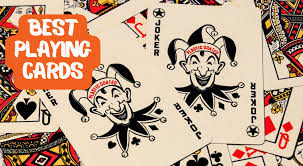
Understanding the Basics of Card Games
For beginners, the first step in mastering the art of playing cards is to understand the basics of various card games. Whether you’re interested in traditional games like Poker, Rummy, or Solitaire, or newer card games like Cards Against Humanity, each game has its own set of rules and strategies. Start by learning the fundamental structure of a deck of cards—there are four suits (hearts, diamonds, clubs, and spades), each with thirteen cards (ace through king). Familiarizing yourself with the value and rank of cards within a suit will help you get a grasp of the basic mechanics of most card games. Once you understand how to play a simple game like Crazy Eights or Go Fish, you can gradually explore more complex games and strategies.
Mastering Card Game Strategies
After you understand the basics, the next step is mastering strategy. Every card game, even those that seem simple, has a strategic element that can greatly improve your chances of winning. For example, in Poker, understanding the importance of hand rankings, position, and bluffing can make a huge difference in your success at the table. In games like Rummy, learning to recognize patterns and making smart decisions about which cards to keep or discard can be a key factor in winning. Even in games that involve luck, such as War or Snap, there are strategies around when to play aggressively and when to wait for the right moment. The more you practice and pay attention to the decisions made by experienced players, the sharper your strategic thinking will become.
Focus on Observation and Memory
In many card games, observation and memory play an essential role in developing expertise. Successful players are able to track which cards have been played and anticipate the cards their opponents might hold. This is especially crucial in games like Bridge or Poker, where knowing your opponents’ tendencies and hand potential can give you a significant advantage. Practicing memory skills and learning to read your opponents’ body language (in face-to-face games) or betting patterns (in Poker) will allow you to make more informed decisions. Being able to recall which cards have been dealt and which are still in play helps you assess risk and make better choices during the game.
Learning Card Etiquette and Manners
In addition to mastering the game itself, understanding proper card etiquette and manners is an essential part of becoming an expert. Whether playing in a casual setting with friends or in a formal casino environment, it’s important to respect the rules of the game and the other players. This includes things like not revealing your hand prematurely, not distracting or intimidating your opponents, and being patient while others make their moves. In Poker, for instance, “slow rolling” (deliberately taking too long to reveal a winning hand) is considered bad form. Displaying sportsmanship—such as congratulating the winner or accepting defeat gracefully—ensures that the game remains fun and enjoyable for everyone involved.
Practicing Regularly and Experimenting with New Games
Finally, becoming an expert at playing cards requires consistent practice. The more you play, the more familiar you become with different strategies, the intricacies of the games, and your own decision-making processes. Don’t be afraid to experiment with new card games and learn different styles of play. Each game presents its own challenges, and by exposing yourself to a variety of them, you’ll expand your knowledge and improve your overall card-playing skills. Playing with a variety of opponents—whether friends, family, or online—also helps you understand how different people approach card games and lets you adapt your strategies accordingly. Over time, as you practice and gain experience, you’ll develop the instinctive skills needed to excel at a variety of card games, making you a true card-playing expert.


